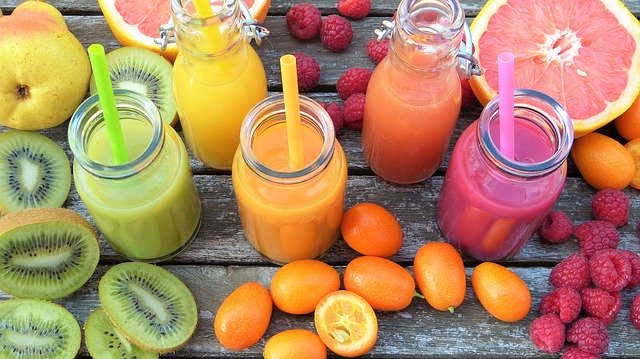More memory, concentration and better performance are the Holy Grail we all seek. Science makes it easier every day by analyzing the most effective nootropics
They promise anyone’s ‘golden dream‘: strengthen the mind by enhancing memory, concentration and productivity. They are the nootropics, also known as ‘smart drugs’, whose popularity is increasing. Who more or less has gone to the pharmacy to order without a prescription some complex of vitamins, ginseng or Ginkgo biloba to ‘speed up’ the brain.
It was the Romanian chemist Corneliu E. Giurgea who in 1972 coined the term ‘nootropic’, from the Greek ‘nous’ (mind) and ‘tropein’ (towards), when he first synthesized Piracetam, a drug that helps neurons better capture oxygen.
Natural nootropics supposedly have the ability to help us improve our mental performance, without producing negative side effects. In fact, as a study published in ‘Current Aging Science’ documents, “while the human brain is known to withstand various attacks in the aging process, it is likely that food-based nootropics contribute greatly to mitigating the impacts. More research is needed before prescribing them.”
According to a current analysis by the consulting firm Reports and Data, the global nootropic market was valued at $ 1.96 billion in 2018 and is expected to reach about $ 5.32 billion by 2026, at a compound rate annual rate of 13.2%.
Now we also know that there are drinks that can have the effects of smart drugs. In addition, others have ingredients, such as antioxidants or probiotics, that can help brain function. We present seven of them:
Coffee
Without a doubt, it is the most consumed nootropic drink. Most of its brain benefits come from caffeine, although it contains other compounds such as the antioxidant chlorogenic acid that can also have positive effects on brain health, as has been confirmed by a work collected in ‘Neurochemistry International’.
Advancing in the scientific literature we find a review study by Australian scientists, published in ‘Neuroscience Biobehavioral Reviews’, which indicates that caffeine can improve concentration, alertness, reaction time and memory in doses of 40 to 300 mg, which is the equivalent of about 0.5 to 3 cups (120 to 720 ml) of coffee.
It is also known that it can also protect against Alzheimer’s disease.
Green Tea
The caffeine content of green tea is much lower than that of coffee. However, it also boasts two promising nootropic compounds: l-theanine and epigallocatechin gallate (EGCG).
The studies suggest that L-Theanine can promote relaxation and L-theanine combined with caffeine can improve care. A review of 21 human trials, published in ‘Phytomedicine’, found that green tea as a whole is good for focus, attention and memory.
Furthermore, EGCG can enter the brain through the blood-brain barrier, which means that it could exert beneficial effects on the brain or even combat neurodegenerative diseases.
Orange juice
It is rich in vitamin C, with 1 cup (240 ml) that provides 93% of the daily value (DV). Interestingly, this vitamin may offer neuroprotective benefits.
A review of 50 studies, published in ‘Nutrients’ by Australian researchers, found that those with higher blood levels of vitamin C or a higher self-reported intake of it had better attention, memory and language scores than those with lower levels blood or ingestion.
However, the downsides of sugary orange juice may outweigh its benefits. A better way to get this vitamin is to simply eat an orange. Whole fruit is lower in calories and sugar, as well as higher in fiber, than orange juice, while providing 77% of the DV for vitamin C.
Cranberry juice
Blueberries are rich in plant-based polyphenol compounds that can provide brain-stimulating benefits. Anthocyanins, antioxidants that give these berries their bluish-purple hue, may be largely responsible. Also, cranberry juice is loaded with other compounds. Still, a review of high-quality studies collecting ‘Brain, Behavior, and Immunity’ in nearly 400 people found mixed results. The strongest positive effect involved better short- and long-term memory, but some studies in this review did not report positive brain effects from the blueberry intake.
What’s more, eating whole blueberries is a healthier, lower-sugar option that can provide similar benefits.
Turmeric milks
Popularly known as golden milk, they are hot and creamy drinks with bright yellow turmeric. Turmeric contains curcumin antioxidant, which can increase the production of Brain-derived neurotrophic factor (BDNF) that affects cognitive function, as documented by ‘Nutrition Research.
Low BDNF is associated with mental deficits and neurological disorders, so raising BDNF levels can improve brain function. However, it should be noted that turmeric milks provide much less curcumin than is often given in studies.
Kefir
Like kombucha, kefir is a fermented drink packed with probiotics. However, it is made from fermented milk rather than tea. It can help brain function by promoting the growth of healthy bacteria in your gut, as reported in the journal ‘Microbiome’.
You can make kefir at home, but you can also choose between drinking yogurt. So now you know how you can empower your mind.
